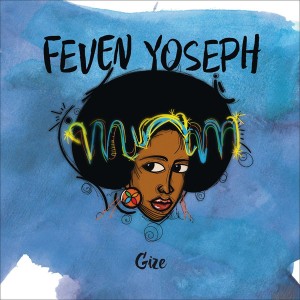
Feven Yoseph has a special relationship with time. Even as a child, says the Berlinbased singer, she asked herself when it all began and how it would end. Perhaps it was the sky over the Ethiopian highlands where Feven Yoseph grew up, a sky that seems so overwhelmingly close, especially at night, that you feel you can touch its velvety infinity with your hands. “Gize” is the title of her new album, which means “time” in Amharic, Feven Yoseph's mother tongue.
Feven Yoseph and her band succeed in organically combining styles that draw on the rich heritage of African musical cultures as well as on the sources of jazz, R&B and the Esperanto of pop. The songs on Gize thus sound simultaneously primal and urban, fresh and unheard and yet deeply familiar.
It is not uncommon to find yourself humming along to the Amharic lyrics or wanting to dance along. Feven Yoseph is undoubtedly following in the footsteps of such great African artists as Miriam Makeba or Angélique Kidjo.
By analogy with Mulatu Astatke, the famous inventor of ethio-jazz, she could certainly be described as the founder of modern ethio-soul.
Charged with the energy and joie de vivre of the metropolis of Berlin. Music that has never been heard before in this form. Six years have passed between Feven Yoseph's rather jazzy debut album “Chanting Soul” and its successor “Gize”. And the patience has paid off.
Because the pieces were able to develop like the sweet honey wine Tej, which the Ethiopian sings about in the song “Gize Fetay”. “It's a traditional drink here that ferments in the dark and matures slowly. Waiting produces something great, something you can't get enough of,” explains the singer.
The same can also be said of the nine happiness-inducing songs on “Gize”. It's time for the world to get to know Feven Yoseph.